Catalogue Entries
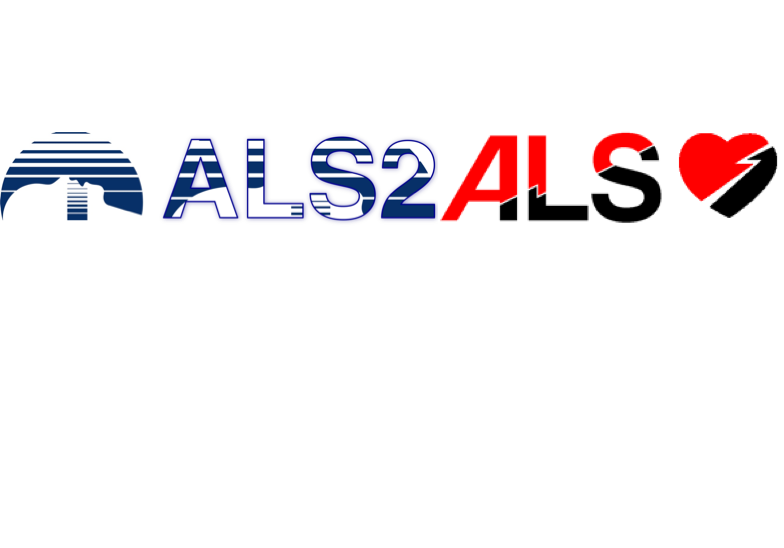
Full - Advanced Life Support (ALS) Level 2 Recertification (Sign-up for Junior Medical Staff)
- No sessions currently available
Mode of delivery: Face-to-face (with printed pre-learning materials)
Course duration: 1 day
Course dates: For available course dates, scroll to the bottom of this catalogue entry.
Pre-requisites:
- Current ALS2 provider card. Note: due to the pandemic extensions, candidates with an ALS2 card with expiry date after March 2020 are permitted to complete this refresher course.
- Current AHPRA registration
- Manager approval
Please contact Ami Young (ami.young@petermac.org) and provide evidence of your current ALS2 provider card and AHPRA registration number to confirm you are eligible for this course before purchase and enrolment.
About this learning program:
This ALS2 recertification course is an intensive 1-day course providing the standardised approach to resuscitation in adults. It has been designed for medical and nursing from critical care areas that have completed and currently hold a current ALS2 provider certificate.
The course encourages a multidisciplinary approach to teaching and learning reflecting the multidisciplinary nature of the course encouraging development of team dynamics in an emergency.
The ALS2 Recertification course consists of lectures, practical workshops and cardiac arrest scenarios, providing the opportunity to practice skills and update knowledge.
The course is very intensive and candidates are sent the ALS2/ALS manual one month prior to the course. Candidates are required to complete a pre-course multiple choice question paper to guide preparation.
The ALS course teaches the knowledge and skills required for:
- Recognition, assessment and management of the deteriorating patient using a structured ABCDE approach (aiming to prevent cardiac arrest)
- Treating cardiac and/or respiratory arrest, including manual defibrillation
- Management of life-threatening arrhythmias
- Preparing and planning for post resuscitation care
- Leading a team, working as a team member, and useing structured communication skills including giving an effective handover
- Consideration for end of life decision making
Learning Objectives:
Upon completion of this learning program, the learner will be able to:
- Revise the standardised approach to CPR used in adults
- Update your knowledge on the resuscitation guidelines
- Refresh your knowledge and practical skills
- Utilise non-technical skills to facilitate strong team leadership and effective team membership
- Describe the ALS algorithm
- Recognise the importance of high quality chest compressions
- Discuss the treatment of shockable and non-shockable rhythms
- Define when to give drugs during cardiac arrest
- Identify the treatment of potentially reversible causes of cardiac arrest
- Discuss the roles within a resuscitation team
- Describe the different types of ACS
- Explain how to recognise and assess an ACS
- List the relevant immediate treatment for each type of ACS
- Discuss how to recognise and respond to other cardiac conditions that may cause cardiac arrest
- Recognise when bradycardia is present
- Identify different degrees of heart block
- Describe how to treat bradycardia
- List the indications for cardiac pacing
- Explain the methods available for cardiac pacing
- Demonstrate how to apply non-invasive, transcutaneous electrical pacing safely and effectively
- Define a tachycardia by its regularity and QRS width
- Explain the principles of treatment
- List the indications for electrical and chemical cardioversion
- Describe how to perform synchronised cardioversion
- Understand the need for continued resuscitation after return of spontaneous circulation
- Understand the post-cardiac arrest syndrome
- Facilitate safe transfer of the patient
- Consider the role and limitations of assessing prognosis after cardiac arrest
What will I get when I have completed this course? Upon successful completion, the learner will be issued a completion certificate from Australian Resuscitation Council (ARC). Certification for the course is valid for up to 4 years.
How to enrol: After confirming your eligibility for this course, please select the appropriate session times below, then click the "add to cart" checkbox on the course icon above to select this course. Once you have added all required courses to your cart, scroll to the top of this catalogue page to view your cart and purchase or enrol in your course(s).
Cancellation policy:
- Cancellation or first deferment advised in writing or via email with no less than 14 working days prior to the scheduled course date, will not incur a financial penalty. Cancellations will be offered an alternative course date to attend, (subject to availability) or a full refund.
- Cancellation received within 14 to 7 working days prior to the scheduled course date, 50% of the course fee will be applied.
- Cancellation received less than 7 working days prior to the scheduled course date, 100% of the course fee will be applied.
- A refund will not be granted if a registrant fails to attend a course.
- Simulation Education reserves the right to cancel planned courses even at short notice. In the event of a cancellation by Simulation Education, all course fees will be refunded.
Disclaimer: by enrolling in this course, you are confirming that:
- You have contacted course coordinator Ami Young (ami.young@petermac.org) to confirm your eligibility to enrol in and complete this course.
- You have approval from your line manager/delegate to enrol in this program and attend at your selected date/time.
Face-to-face sessions
Advanced Life Support (ALS) - Level 2 Recertification
No sessions currently available

Full - Advanced Life Support (ALS) Level 2 Recertification (Sign-up for Nurses)
- No sessions currently available
Mode of delivery: Face-to-face (with printed pre-learning materials)
Course duration: 1 day
Course dates: For available course dates, scroll to the bottom of this catalogue entry.
Pre-requisites:
- Current ALS2 provider card. Note: due to the pandemic extensions, candidates with an ALS2 card with expiry date after March 2020 are permitted to complete this refresher course.
- Current AHPRA registration
- Manager approval
Please contact Ami Young (ami.young@petermac.org) and provide evidence of your current ALS2 provider card and AHPRA registration number to confirm you are eligible for this course before purchase and enrolment.
About this learning program:
This ALS2 recertification course is an intensive 1-day course providing the standardised approach to resuscitation in adults. It has been designed for medical and nursing from critical care areas that have completed and currently hold a current ALS2 provider certificate.
The course encourages a multidisciplinary approach to teaching and learning reflecting the multidisciplinary nature of the course encouraging development of team dynamics in an emergency.
The ALS2 Recertification course consists of lectures, practical workshops and cardiac arrest scenarios, providing the opportunity to practice skills and update knowledge.
The course is very intensive and candidates are sent the ALS2/ALS manual one month prior to the course. Candidates are required to complete a pre-course multiple choice question paper to guide preparation.
The ALS course teaches the knowledge and skills required for:
- Recognition, assessment and management of the deteriorating patient using a structured ABCDE approach (aiming to prevent cardiac arrest)
- Treating cardiac and/or respiratory arrest, including manual defibrillation
- Management of life-threatening arrhythmias
- Preparing and planning for post resuscitation care
- Leading a team, working as a team member, and useing structured communication skills including giving an effective handover
- Consideration for end of life decision making
Learning Objectives:
Upon completion of this learning program, the learner will be able to:
- Revise the standardised approach to CPR used in adults
- Update your knowledge on the resuscitation guidelines
- Refresh your knowledge and practical skills
- Utilise non-technical skills to facilitate strong team leadership and effective team membership
- Describe the ALS algorithm
- Recognise the importance of high quality chest compressions
- Discuss the treatment of shockable and non-shockable rhythms
- Define when to give drugs during cardiac arrest
- Identify the treatment of potentially reversible causes of cardiac arrest
- Discuss the roles within a resuscitation team
- Describe the different types of ACS
- Explain how to recognise and assess an ACS
- List the relevant immediate treatment for each type of ACS
- Discuss how to recognise and respond to other cardiac conditions that may cause cardiac arrest
- Recognise when bradycardia is present
- Identify different degrees of heart block
- Describe how to treat bradycardia
- List the indications for cardiac pacing
- Explain the methods available for cardiac pacing
- Demonstrate how to apply non-invasive, transcutaneous electrical pacing safely and effectively
- Define a tachycardia by its regularity and QRS width
- Explain the principles of treatment
- List the indications for electrical and chemical cardioversion
- Describe how to perform synchronised cardioversion
- Understand the need for continued resuscitation after return of spontaneous circulation
- Understand the post-cardiac arrest syndrome
- Facilitate safe transfer of the patient
- Consider the role and limitations of assessing prognosis after cardiac arrest
What will I get when I have completed this course? Upon successful completion, the learner will be issued a completion certificate from Australian Resuscitation Council (ARC). Certification for the course is valid for up to 4 years.
How to enrol: After confirming your eligibility for this course, please select the appropriate session times below, then click the "add to cart" checkbox on the course icon above to select this course. Once you have added all required courses to your cart, scroll to the top of this catalogue page to view your cart and purchase or enrol in your course(s).
Cancellation policy:
- Cancellation or first deferment advised in writing or via email with no less than 14 working days prior to the scheduled course date, will not incur a financial penalty. Cancellations will be offered an alternative course date to attend, (subject to availability) or a full refund.
- Cancellation received within 14 to 7 working days prior to the scheduled course date, 50% of the course fee will be applied.
- Cancellation received less than 7 working days prior to the scheduled course date, 100% of the course fee will be applied.
- A refund will not be granted if a registrant fails to attend a course.
- Simulation Education reserves the right to cancel planned courses even at short notice. In the event of a cancellation by Simulation Education, all course fees will be refunded.
Disclaimer: by enrolling in this course, you are confirming that:
- You have contacted course coordinator Ami Young (ami.young@petermac.org) to confirm your eligibility to enrol in and complete this course.
- You have approval from your line manager/delegate to enrol in this program and attend at your selected date/time.
Face-to-face sessions
Advanced Life Support (ALS) - Level 2 Recertification
No sessions currently available

Full - Advanced Life Support (ALS) Level 2 Recertification (Sign-up for Senior Medical Staff)
- No sessions currently available
Mode of delivery: Face-to-face (with printed pre-learning materials)
Course duration: 1 day
Course dates: For available course dates, scroll to the bottom of this catalogue entry.
Pre-requisites:
- Current ALS2 provider card. Note: due to the pandemic extensions, candidates with an ALS2 card with expiry date after March 2020 are permitted to complete this refresher course.
- Current AHPRA registration
- Manager approval
Please contact Ami Young (ami.young@petermac.org) and provide evidence of your current ALS2 provider card and AHPRA registration number to confirm you are eligible for this course before purchase and enrolment.
About this learning program:
This ALS2 recertification course is an intensive 1-day course providing the standardised approach to resuscitation in adults. It has been designed for medical and nursing from critical care areas that have completed and currently hold a current ALS2 provider certificate.
The course encourages a multidisciplinary approach to teaching and learning reflecting the multidisciplinary nature of the course encouraging development of team dynamics in an emergency.
The ALS2 Recertification course consists of lectures, practical workshops and cardiac arrest scenarios, providing the opportunity to practice skills and update knowledge.
The course is very intensive and candidates are sent the ALS2/ALS manual one month prior to the course. Candidates are required to complete a pre-course multiple choice question paper to guide preparation.
The ALS course teaches the knowledge and skills required for:
- Recognition, assessment and management of the deteriorating patient using a structured ABCDE approach (aiming to prevent cardiac arrest)
- Treating cardiac and/or respiratory arrest, including manual defibrillation
- Management of life-threatening arrhythmias
- Preparing and planning for post resuscitation care
- Leading a team, working as a team member, and useing structured communication skills including giving an effective handover
- Consideration for end of life decision making
Learning Objectives:
Upon completion of this learning program, the learner will be able to:
- Revise the standardised approach to CPR used in adults
- Update your knowledge on the resuscitation guidelines
- Refresh your knowledge and practical skills
- Utilise non-technical skills to facilitate strong team leadership and effective team membership
- Describe the ALS algorithm
- Recognise the importance of high quality chest compressions
- Discuss the treatment of shockable and non-shockable rhythms
- Define when to give drugs during cardiac arrest
- Identify the treatment of potentially reversible causes of cardiac arrest
- Discuss the roles within a resuscitation team
- Describe the different types of ACS
- Explain how to recognise and assess an ACS
- List the relevant immediate treatment for each type of ACS
- Discuss how to recognise and respond to other cardiac conditions that may cause cardiac arrest
- Recognise when bradycardia is present
- Identify different degrees of heart block
- Describe how to treat bradycardia
- List the indications for cardiac pacing
- Explain the methods available for cardiac pacing
- Demonstrate how to apply non-invasive, transcutaneous electrical pacing safely and effectively
- Define a tachycardia by its regularity and QRS width
- Explain the principles of treatment
- List the indications for electrical and chemical cardioversion
- Describe how to perform synchronised cardioversion
- Understand the need for continued resuscitation after return of spontaneous circulation
- Understand the post-cardiac arrest syndrome
- Facilitate safe transfer of the patient
- Consider the role and limitations of assessing prognosis after cardiac arrest
What will I get when I have completed this course? Upon successful completion, the learner will be issued a completion certificate from Australian Resuscitation Council (ARC). Certification for the course is valid for up to 4 years.
How to enrol: After confirming your eligibility for this course, please select the appropriate session times below, then click the "add to cart" checkbox on the course icon above to select this course. Once you have added all required courses to your cart, scroll to the top of this catalogue page to view your cart and purchase or enrol in your course(s).
Cancellation policy:
- Cancellation or first deferment advised in writing or via email with no less than 14 working days prior to the scheduled course date, will not incur a financial penalty. Cancellations will be offered an alternative course date to attend, (subject to availability) or a full refund.
- Cancellation received within 14 to 7 working days prior to the scheduled course date, 50% of the course fee will be applied.
- Cancellation received less than 7 working days prior to the scheduled course date, 100% of the course fee will be applied.
- A refund will not be granted if a registrant fails to attend a course.
- Simulation Education reserves the right to cancel planned courses even at short notice. In the event of a cancellation by Simulation Education, all course fees will be refunded.
Disclaimer: by enrolling in this course, you are confirming that:
- You have contacted course coordinator Ami Young (ami.young@petermac.org) to confirm your eligibility to enrol in and complete this course.
- You have approval from your line manager/delegate to enrol in this program and attend at your selected date/time.
Face-to-face sessions
Advanced Life Support (ALS) - Level 2 Recertification
No sessions currently available

Advanced Life Support Level 2 (Sign Up for Consultants)
About this learning program:
This is a two-day (or modular) course with the focus on the developing advanced skills in managing deteriorating patient and cardiac arrest. The course is designed for healthcare professionals with who would be expected to apply those skills taught as part of their clinical duties, or to teach them on a regular basis. Appropriate participants include doctors, and nurses working in critical care areas (e.g. ED, CCU, ICU, HDU, acute admissions units) or in the resuscitation /medical emergency team, and paramedics.
Medical students, nurses and other healthcare providers not covered in the groups above may be encouraged to complete the ALS1/Immediate Life Support (ALS1/ILS) course. Those with a particular interest in resuscitation should then consider attending an ALS2/ALS course, where appropriate.
The course is very intensive and candidates are sent the ALS2/ALS manual one month prior to the course. Candidates are required to complete a pre-course multiple choice question paper to guide preparation.
Prior skills and competence in CPR is an essential prerequisite to attending the course. While the course covers advanced resuscitation skills it is also designed to develop leadership and team skills in managing such emergencies.
The ALS course teaches the knowledge and skills required to:
- Recognition, assessment and management of the deteriorating patient using a structured ABCDE approach (aiming to prevent cardiac arrest)
- Treat cardiac and/or respiratory arrest, including manual defibrillation
- Management of life-threatening arrhythmias
- Preparing and planning for post resuscitation care
- Care for the deteriorating patient or patient in cardiac and/or respiratory arrest in special circumstances such as asthma, anaphylaxis, and pregnancy
- Lead a team, work as a team member, and use structured communication skills including giving an effective handover
- Consideration for end of life decision making
Learning Objectives:
Upon completion of this learning program, the learner will be able to:
- Discuss the importance of early recognition of the deteriorating patient
- Describe the causes of cardiac arrest in adults
- State how to assess a patient using the ABCDE approach
- Demonstrate airway assessment, maintenance and artificial ventilation
- Describe the heart conditions that may cause cardiac arrest
- Explain the process that causes acute coronary syndromes (ACS)
- Describe the different types of ACS
- Explain how to recognise and assess an ACS
- List the relevant immediate treatment for each type of ACS
- Discuss how to recognise and respond to other cardiac conditions that may cause cardiac arrest.
- Review the role of resuscitation team
- Describe the ALS algorithm
- Explain the treatment of shockable and non-shockable rhythms
- State the reversible causes of cardiac arrest
- Deliver standardised CPR in adults
- Deliver safe manual defibrillation
- Understand the need for continued resuscitation after return of spontaneous circulation
- Understand the post-cardiac arrest syndrome
- Facilitate safe transfer of the patient
- Consider the role and limitations of assessing prognosis after cardiac arrest
- Recognise when bradycardia is present
- Identify different degrees of heart block
- Describe how to treat bradycardia
- List the indications for cardiac pacing
- Explain the methods available for cardiac pacing
- Demonstrate how to apply non-invasive, transcutaneous electrical pacing safely and effectively
- Define a tachycardia by its regularity and QRS width
- Explain the principles of treatment
- List the indications for electrical and chemical cardioversion
- Describe how to perform synchronised cardioversion
- Understand the approach to the patient with anaphylaxis
- Recognise the signs and symptoms of anaphylaxis
- Know how to manage the patient with anaphylaxis
- Understand the role of IM adrenaline
- Understand the potential complications of IV adrenaline and the indications for its use
- Understand how to assess and treat the patient with asthma
- Recognise the signs and symptoms of acute, severe life-threatening, and near-fatal asthma
- Understand the potential complications following tracheal intubation and ventilation
- Understand the terms used to describe the results of arterial blood gas analysis
- Use the 5-step approach to arterial blood gas interpretation
- Identify some of the common causes of arterial blood gas abnormalities and how they should be managed
Activity requirements:
To successfully complete this program, learners must:
- Book into and attend the session
- Complete the post-session evaluation
Additional documents such as slides and print-outs will also be provided via this Learning Hub course page to supplement your learning.
Upon successful completion of the elements listed above, you will be able to access a Certificate of Completion from the relevant tab of this course page.
Learning outcomes:
Learning outcomes demonstrate successful knowledge and skills in the objectives above.
Support & troubleshooting:
Please contact Ami Young, Nurse Coordinator, at ami.young@petermac.org if you have queries regarding course content. If you require assistance with the Learning Hub processes, please contact the Learning Hub team at LearningHubSupport@petermac.org or call (03) 8559 6107 (9:00 am to 4:30 pm AEST, Monday - Friday).
Face-to-face sessions
Advanced Life Support Level 2
| Select | Start date | End date | Room | |
|---|---|---|---|---|
| 13.2A.21, Peter Mac, 305 Grattan St Melbourne 3000, 13.2A.21, Peter Mac, 305 Grattan St Melbourne 3000 |

Advanced Life Support Level 2 (sign up for Junior medical staff)
About this learning program:
This is a two-day (or modular) course with the focus on the developing advanced skills in managing deteriorating patient and cardiac arrest. The course is designed for healthcare professionals with who would be expected to apply those skills taught as part of their clinical duties, or to teach them on a regular basis. Appropriate participants include doctors, and nurses working in critical care areas (e.g. ED, CCU, ICU, HDU, acute admissions units) or in the resuscitation /medical emergency team, and paramedics.
Medical students, nurses and other healthcare providers not covered in the groups above may be encouraged to complete the ALS1/Immediate Life Support (ALS1/ILS) course. Those with a particular interest in resuscitation should then consider attending an ALS2/ALS course, where appropriate.
The course is very intensive and candidates are sent the ALS2/ALS manual one month prior to the course. Candidates are required to complete a pre-course multiple choice question paper to guide preparation.
Prior skills and competence in CPR is an essential prerequisite to attending the course. While the course covers advanced resuscitation skills it is also designed to develop leadership and team skills in managing such emergencies.
The ALS course teaches the knowledge and skills required to:
- Recognition, assessment and management of the deteriorating patient using a structured ABCDE approach (aiming to prevent cardiac arrest)
- Treat cardiac and/or respiratory arrest, including manual defibrillation
- Management of life-threatening arrhythmias
- Preparing and planning for post resuscitation care
- Care for the deteriorating patient or patient in cardiac and/or respiratory arrest in special circumstances such as asthma, anaphylaxis, and pregnancy
- Lead a team, work as a team member, and use structured communication skills including giving an effective handover
- Consideration for end of life decision making
Learning Objectives:
Upon completion of this learning program, the learner will be able to:
- Discuss the importance of early recognition of the deteriorating patient
- Describe the causes of cardiac arrest in adults
- State how to assess a patient using the ABCDE approach
- Demonstrate airway assessment, maintenance and artificial ventilation
- Describe the heart conditions that may cause cardiac arrest
- Explain the process that causes acute coronary syndromes (ACS)
- Describe the different types of ACS
- Explain how to recognise and assess an ACS
- List the relevant immediate treatment for each type of ACS
- Discuss how to recognise and respond to other cardiac conditions that may cause cardiac arrest.
- Review the role of resuscitation team
- Describe the ALS algorithm
- Explain the treatment of shockable and non-shockable rhythms
- State the reversible causes of cardiac arrest
- Deliver standardised CPR in adults
- Deliver safe manual defibrillation
- Understand the need for continued resuscitation after return of spontaneous circulation
- Understand the post-cardiac arrest syndrome
- Facilitate safe transfer of the patient
- Consider the role and limitations of assessing prognosis after cardiac arrest
- Recognise when bradycardia is present
- Identify different degrees of heart block
- Describe how to treat bradycardia
- List the indications for cardiac pacing
- Explain the methods available for cardiac pacing
- Demonstrate how to apply non-invasive, transcutaneous electrical pacing safely and effectively
- Define a tachycardia by its regularity and QRS width
- Explain the principles of treatment
- List the indications for electrical and chemical cardioversion
- Describe how to perform synchronised cardioversion
- Understand the approach to the patient with anaphylaxis
- Recognise the signs and symptoms of anaphylaxis
- Know how to manage the patient with anaphylaxis
- Understand the role of IM adrenaline
- Understand the potential complications of IV adrenaline and the indications for its use
- Understand how to assess and treat the patient with asthma
- Recognise the signs and symptoms of acute, severe life-threatening, and near-fatal asthma
- Understand the potential complications following tracheal intubation and ventilation
- Understand the terms used to describe the results of arterial blood gas analysis
- Use the 5-step approach to arterial blood gas interpretation
- Identify some of the common causes of arterial blood gas abnormalities and how they should be managed
Activity requirements:
To successfully complete this program, learners must:
- Book into and attend the session
- Complete the post-session evaluation
Additional documents such as slides and print-outs will also be provided via this Learning Hub course page to supplement your learning.
Upon successful completion of the elements listed above, you will be able to access a Certificate of Completion from the relevant tab of this course page.
Learning outcomes:
Learning outcomes demonstrate successful knowledge and skills in the objectives above.
Support & troubleshooting:
Please contact Ami Young, Nurse Coordinator, at ami.young@petermac.org if you have queries regarding course content. If you require assistance with the Learning Hub processes, please contact the Learning Hub team at LearningHubSupport@petermac.org or call (03) 8559 6107 (9:00 am to 4:30 pm AEST, Monday - Friday).
Face-to-face sessions
Advanced Life Support Level 2
| Select | Start date | End date | Room | |
|---|---|---|---|---|
| 13.2A.21, Peter Mac, 305 Grattan St Melbourne 3000, 13.2A.21, Peter Mac, 305 Grattan St Melbourne 3000 |

Advanced Life Support Level 2 (Sign-up for Nurses)
About this learning program:
This is a two-day (or modular) course with the focus on the developing advanced skills in managing deteriorating patient and cardiac arrest. The course is designed for healthcare professionals with who would be expected to apply those skills taught as part of their clinical duties, or to teach them on a regular basis. Appropriate participants include doctors, and nurses working in critical care areas (e.g. ED, CCU, ICU, HDU, acute admissions units) or in the resuscitation /medical emergency team, and paramedics.
Medical students, nurses and other healthcare providers not covered in the groups above may be encouraged to complete the ALS1/Immediate Life Support (ALS1/ILS) course. Those with a particular interest in resuscitation should then consider attending an ALS2/ALS course, where appropriate.
The course is very intensive and candidates are sent the ALS2/ALS manual one month prior to the course. Candidates are required to complete a pre-course multiple choice question paper to guide preparation.
Prior skills and competence in CPR is an essential prerequisite to attending the course. While the course covers advanced resuscitation skills it is also designed to develop leadership and team skills in managing such emergencies.
The ALS course teaches the knowledge and skills required to:
- Recognition, assessment and management of the deteriorating patient using a structured ABCDE approach (aiming to prevent cardiac arrest)
- Treat cardiac and/or respiratory arrest, including manual defibrillation
- Management of life-threatening arrhythmias
- Preparing and planning for post resuscitation care
- Care for the deteriorating patient or patient in cardiac and/or respiratory arrest in special circumstances such as asthma, anaphylaxis, and pregnancy
- Lead a team, work as a team member, and use structured communication skills including giving an effective handover
- Consideration for end of life decision making
Learning Objectives:
Upon completion of this learning program, the learner will be able to:
- Discuss the importance of early recognition of the deteriorating patient
- Describe the causes of cardiac arrest in adults
- State how to assess a patient using the ABCDE approach
- Demonstrate airway assessment, maintenance and artificial ventilation
- Describe the heart conditions that may cause cardiac arrest
- Explain the process that causes acute coronary syndromes (ACS)
- Describe the different types of ACS
- Explain how to recognise and assess an ACS
- List the relevant immediate treatment for each type of ACS
- Discuss how to recognise and respond to other cardiac conditions that may cause cardiac arrest.
- Review the role of resuscitation team
- Describe the ALS algorithm
- Explain the treatment of shockable and non-shockable rhythms
- State the reversible causes of cardiac arrest
- Deliver standardised CPR in adults
- Deliver safe manual defibrillation
- Understand the need for continued resuscitation after return of spontaneous circulation
- Understand the post-cardiac arrest syndrome
- Facilitate safe transfer of the patient
- Consider the role and limitations of assessing prognosis after cardiac arrest
- Recognise when bradycardia is present
- Identify different degrees of heart block
- Describe how to treat bradycardia
- List the indications for cardiac pacing
- Explain the methods available for cardiac pacing
- Demonstrate how to apply non-invasive, transcutaneous electrical pacing safely and effectively
- Define a tachycardia by its regularity and QRS width
- Explain the principles of treatment
- List the indications for electrical and chemical cardioversion
- Describe how to perform synchronised cardioversion
- Understand the approach to the patient with anaphylaxis
- Recognise the signs and symptoms of anaphylaxis
- Know how to manage the patient with anaphylaxis
- Understand the role of IM adrenaline
- Understand the potential complications of IV adrenaline and the indications for its use
- Understand how to assess and treat the patient with asthma
- Recognise the signs and symptoms of acute, severe life-threatening, and near-fatal asthma
- Understand the potential complications following tracheal intubation and ventilation
- Understand the terms used to describe the results of arterial blood gas analysis
- Use the 5-step approach to arterial blood gas interpretation
- Identify some of the common causes of arterial blood gas abnormalities and how they should be managed
Activity requirements:
To successfully complete this program, learners must:
- Book into and attend the session
- Complete the post-session evaluation
Additional documents such as slides and print-outs will also be provided via this Learning Hub course page to supplement your learning.
Upon successful completion of the elements listed above, you will be able to access a Certificate of Completion from the relevant tab of this course page.
Learning outcomes:
Learning outcomes demonstrate successful knowledge and skills in the objectives above.
Support & troubleshooting:
Please contact Ami Young, Nurse Coordinator, at ami.young@petermac.org if you have queries regarding course content. If you require assistance with the Learning Hub processes, please contact the Learning Hub team at LearningHubSupport@petermac.org or call (03) 8559 6107 (9:00 am to 4:30 pm AEST, Monday - Friday).
Face-to-face sessions
Advanced Life Support Level 2
| Select | Start date | End date | Room | |
|---|---|---|---|---|
| 13.2A.21, Peter Mac, 305 Grattan St Melbourne 3000, 13.2A.21, Peter Mac, 305 Grattan St Melbourne 3000 |

Full - Cancer Care Emergencies: Academic Nursing Unit (ANU)
- No sessions currently available
Mode of delivery:
OR
Online seminar (with online supporting materials)
Course duration: 1 day
Course dates: For available course dates and delivery modes, scroll to the bottom of this catalogue entry. Note: spaces may be reserved for Peter Mac staff or open for sign-ups from the general public. Ensure a relevant space is available by checking the listings below before purchasing this course.
Pre-requisites: Peter Mac staff members require manager approval to attend this course. No prerequisites exist for external participants.
Audience: This course is open to registered nurses and enrolled nurses.
About this learning program:
This in an introductory program. This program aims to provide participants with an overview of the definition, cause, clinical features, diagnostic tests and medical and nursing management of patients experiencing common oncologic emergencies.
Learning Objectives & Learning Outcomes:
Upon completion of this learning program, the learner will be able to:
- Define common oncologic emergencies
- Discuss the incidence, aetiology and diagnosis for common oncologic emergencies
- Identify and discuss the medical and nursing management for common oncologic emergencies
On completion of the program, participants will be able to define common oncologic emergencies and discuss the nursing management for patients with these conditions
What will I get when I have completed this course?
Upon attendance of the training session, learners will obtain a Certificate of Completion as proof of training.
How to enrol: Click the "add to cart" checkbox on the course icon above to select this course. Once you have added all required courses to your cart, scroll to the top of this catalogue page to view your cart and purchase or enrol in your course(s). After you have purchased your course, access the course page and sign up to your desired session time.
Note: Available course dates are listed below. Ensure the date and mode of delivery suits you before purchasing the course.
Disclaimer - Peter Mac Staff: by enrolling in this course, you are confirming that:
- You have approval from your line manager/delegate to enrol in this program and attend at your selected date/time.
- Your line manager/delegate has approved this program as relevant to your clinical practice and will support completion of relevant clinical competency assessments.
Face-to-face sessions
Education Session: Cancer Care Emergencies
No sessions currently available

Cancer Nursing in the Community
Mode of delivery: Online
Course Duration: Each module within this course will take approx. 2 hours. With the entire course equating to 8 hours. Certificates are available at the end of each individual module for evidence of continuous professional development (CPD).
Audience: This course is designed for registered nurses working in the community, caring for patients with a cancer diagnosis.
About this learning program: This course aims to support nurses working in the community context, with foundational knowledge and technical clinical skill when caring for the most common referrals in the community, for the person with cancer. The online course is designed to be delivered flexibly and compromises of the below four modules. You may choose to complete one module, or all depending on your learning needs.
· Central Venous Access Devices
· Cancer Surgery
· Systemic Anti-Cancer Therapy
· Radiotherapy
While parts of this course address the care needs of Peter Mac patients in the community, the knowledge base and technical skill can be applied when caring for patients with a diagnosis of cancer in the community who are not under the care of this organisation.
This program is evidence-based and aligns with Peter MacCallum Cancer Centre clinical procedure. All principles can be applied to the assessment and management of the person with cancer in the community. However, nurses should continue to follow their own health service policies and procedures when delivering care in the community.
How to enrol:
Click the "add to cart" checkbox on the course icon above to select this course. Once you have added all required courses to your cart, scroll to the top of this catalogue page to view your cart and purchase or enrol in your course(s).
For course related queries please contact: educationcentre.nursing@petermac.org
For technical assistance please contact: LearningHubSupport@petermac.org

Cancer-Related Fatigue - NEW ENERGY
Price: Free!
Mode of delivery: online
Course duration: Approx. 1 hour
Pre-requisites: N/A
Audience: This course is open for all learners including people affected by cancer. It is designed for health professionals working in cancer care and survivorship, including all allied health, nursing, medical and RT clinicians, general practitioners (GPs) and other professionals.
About this learning program:
We know that fatigue disrupts the lives of around half of all cancer patients and survivors. But - patients report they are rarely asked about their fatigue or energy levels during healthcare encounters. One reason health professionals say they avoid asking patients about their fatigue is because they don’t know what to do next. Something CAN be done!
This course provides generic education for health professionals in recognising and managing fatigue in cancer. In three short modules, you will learn how fatigue affects patients’ lives, how to screen and grade fatigue and key evidence-based management approaches. The program is based on the Canadian Association of Psychosocial Oncology (CAPO) guidelines for managing cancer-related fatigue. To help busy clinicians apply the guidelines, the CAPO algorithm was adapted to a traffic-light system.
Learning Objectives:
- List the features, prevalence and causes of fatigue.
- Identify some personal impacts fatigue may have on people with cancer.
- Recall cancer-related fatigue screening methods.
- Describe fatigue prevention methods.
- Assess factors contributing to moderate/severe fatigue.
- Outline the appropriate actions to take when a patient’s fatigue is graded moderate to severe and identify how to access expert help.
What’s included in this course
- Three online learning modules:
- Module One: video (10 min)
- Module Two: interactive eLearning module (10-20 min)
- Module Three: interactive eLearning module (10-15 min)
- Three short end-of-module quizzes to help you check your understanding
- A variety of useful resources and links, including clinical practice resources, fact sheets, screening/assessment algorithms, referral guides, collated links to patient resources and rehab programs, etc.
What will I get when I have completed this course?
Upon completion of the online modules and
end-of-module evaluations, learners will obtain a Certificate of Completion as
proof of training.
How to enrol:
Please click the "add to cart"
checkbox on the course icon above to select this course. Once you have
added to cart, scroll to the top of this catalogue page to view your cart and enrol
in your course.

Central Venous Access Devices (CVAD): Academic Nursing Unit (ANU)
Mode of delivery: Face-to-face (with online supporting materials)
Course duration: 3 hours
Note re: Peripheral Cannulation Training
Content regarding peripheral cannulation is scheduled in the first half of the day, and is followed by the CVAD component which is scheduled in the afternoon. If you wish to complete both courses, you must enrol and book into cannulation training separately on the Learning Hub.
Course dates: For available course dates and delivery modes, scroll to the bottom of this catalogue entry. Note: spaces may be reserved for Peter Mac staff or open for sign-ups from the general public. Ensure a relevant space is available by checking the listings below before purchasing this course.
Pre-requisites: Peter Mac staff members require manager approval to attend this course. No prerequisites exist for external participants.
Audience: This course is open to registered nurses and enrolled nurses.
About this learning program:
This course provides the necessary theory for Central Venous Access Device (CVAD) management in adult patients. The program content outlines the various types of central venous access devices, indications and rationale for use, and subsequent management.
Learning Objectives & Learning Outcomes:
Upon completion of this learning program, the learner will be able to:
- List Indications for peripheral and central venous catheterisation
- Recall relevant vascular and related anatomy
- Identify relevant devices for central venous catheterisation
- Discuss the nursing assessment, interventions and management of central venous access devices pre- and post-insertion
- Explain complications associated with central venous access devices
- Outline documentation requirements
- Identify nursing interventions required prior to CVAD insertion
On completion of the program, participants will be able to outline the various types of central venous access devices, indications and rationale for use, and their subsequent management.
What will I get when I have completed this course?
Upon attendance of the training session, learners will obtain a Certificate of Completion as proof of training.
How to enrol: Click the "add to cart" checkbox on the course icon above to select this course. Once you have added all required courses to your cart, scroll to the top of this catalogue page to view your cart and purchase or enrol in your course(s). After you have purchased your course, access the course page and sign up to your desired session time.
Note: Available course dates are listed below. Ensure the date and mode of delivery suits you before purchasing the course.
Disclaimer - Peter Mac Staff: by enrolling in this course, you are confirming that:
- You have approval from your line manager/delegate to enrol in this program and attend at your selected date/time.
- Your line manager/delegate has approved this program as relevant to your clinical practice and will support completion of relevant clinical competency assessments.
Face-to-face sessions
Seminar Bookings - CVAD
| Select | Start date | End date | Room | |
|---|---|---|---|---|
| Meeting Room 7B, Level 7, Peter MacCallum Cancer Centre, 305 Grattan Street, Melbourne VIC | ||||
| Meeting Room 7B, Level 7, Peter MacCallum Cancer Centre, 305 Grattan Street, Melbourne VIC |

Chemotherapy Module One: Academic Nursing Unit (ANU)
Mode of delivery:
OR
Online seminar (with online supporting materials)
Course duration: 1 day
Course dates: For available course dates and delivery modes, scroll to the bottom of this catalogue entry. Note: spaces may be reserved for Peter Mac staff or open for sign-ups from the general public. Ensure a relevant space is available by checking the listings below before purchasing this course.
Pre-requisites: Peter Mac staff members require manager approval to attend this course. No prerequisites exist for external participants.
Audience: This course is open to registered nurses and enrolled nurses.
About this learning program:
This is an introductory program. This course provides participants with the underlying principles and theory of safe practice related to administration and management of cytotoxic drugs including side effect management and patient education.
Learning Objectives & Learning Outcomes:
Upon completion of this learning program, the learner will be able to:
- Identify guiding statements relating to cytotoxic management
- Explain the aim of cytotoxic therapy in the care of the person with cancer
- Identify major anti-cancer therapy classifications
- List common side effects associated with cytotoxic therapy
- Discuss the education requirements and nursing management of the patient receiving cytotoxic therapy
- Recognise principles of safe handling and administration in the management of cytotoxic therapy
At the completion of this study day and with further reading, it is expected that participants will be able to;
- Outline the rationale for using cytotoxic therapy for the treatment of malignant disease
- Describe the major classifications of cytotoxic and anti-cancer therapy
- Outline the potential & actual side effects related to cytotoxic administration using a systems approach
- Provide an overview of the specific requirements the RN/EN must undertake for the safe administration and safe handling of cytotoxic agents to minimise the risk of exposure
What will I get when I have completed this course?
Upon attendance of the training session, learners will obtain a Certificate of Completion as proof of training.
How to enrol: Click the "add to cart" checkbox on the course icon above to select this course. Once you have added all required courses to your cart, scroll to the top of this catalogue page to view your cart and purchase or enrol in your course(s). After you have purchased your course, access the course page and sign up to your desired session time.
Note: Available course dates are listed below. Ensure the date and mode of delivery suits you before purchasing the course.
Disclaimer - Peter Mac Staff: by enrolling in this course, you are confirming that:
- You have approval from your line manager/delegate to enrol in this program and attend at your selected date/time.
- Your line manager/delegate has approved this program as relevant to your clinical practice and will support completion of relevant clinical competency assessments.
Face-to-face sessions
Seminar Booking - Chemotherapy Module One
| Select | Start date | End date | Room | |
|---|---|---|---|---|
| Online Delivery - Microsoft Teams | ||||
| Meeting Room 7B, Level 7, Peter MacCallum Cancer Centre, 305 Grattan Street, Melbourne VIC |
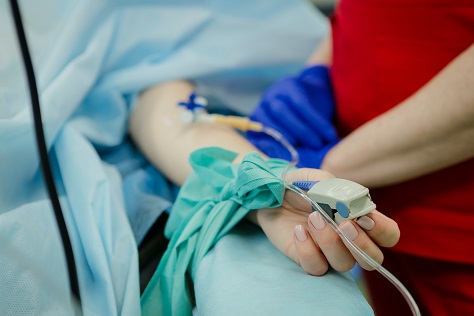
Full - Chemotherapy Module Two: Academic Nursing Unit (ANU) Short Course
- No sessions currently available
Mode of delivery: Face-to-face (with online supporting materials)
Course duration: 4 days
Course location: Peter MacCallum Cancer Centre (Parkville Campus), 305 Grattan Street, Melbourne VIC
Audience: This course is open to Registered Nurses.
Pre-requisites:
Applicant must confirm that they have completed Chemotherapy Module One OR equivalent learning that includes how chemotherapy drugs work, side effects, administration and safe handling such as the following 7 eVIQ online modules:
- Handling antineoplastic drugs and related waste safely
- Understanding how antineoplastic drugs work
- Reviewing protocols and prescriptions
- Education the patient and carer
- Assessing patients
- Administering oral antineoplastic drugs
- Administering antineoplastic drugs
- Peter Mac staff members require manager approval to attend this course.
Course dates:
This course runs over 4 (non-consecutive) days.
May course dates:
- Monday May 6
- Tuesday May 7
- Tuesday May 21
- Wednesday May 22
- Wednesday August 28
- Thursday August 29
- Tuesday September 17
- Wednesday September 18
About this learning program:
This is an intermediate level course, scheduled over 4 days. Completion of Chemotherapy Module 1 or an approved equivalent is a pre-requisite. Previous chemotherapy administration experience will be an advantage. This course builds on the knowledge gained from Chemotherapy Nursing Module 1 (or equivalent) and will benefit those nurses working in areas where chemotherapy is a major treatment modality. Content includes review of cancer cell biology, chemotherapy and targeted therapy mode of action, common toxicities and patient management.
Learning Objectives & Learning Outcomes:
Upon completion of this learning program, the learner will be able to:
- Identify and discuss the management of occupational risks associated with the administration of cytotoxic therapy
- Demonstrate an understanding of cancer cell biology, staging systems and tumour markers
- Identify factors impacting on chemotherapy dosing and checking processes
- Describe the mode of action of major cytotoxic drug classifications
- Discuss the role of clinical trials, targeted therapies and immunotherapy in the treatment of cancer
- Discuss potential complications of chemotherapy administration
- Explain the mechanism of action, common toxicities and administration considerations for specific cytotoxic agents
- Identify common side effects of cytotoxic drugs and the nursing interventions required to manage these side effects
- Use principles of patient education to inform teaching and training in the clinical setting
- Recognise the benefits of patient referral to relevant resources and programs
At the completion of this course and with further reading, the Registered Nurse will be able to:
- Define how chemotherapy and targeted therapies are used in cancer management
- List the major chemotherapy drug classifications and their general mechanisms of action
- Identify the common side effects/toxicities of cytotoxic drugs and potential complications of administration and outline their management
- Recognize relevant support resources for patients receiving chemotherapy
What will I get when I have completed this course?
Upon attendance of the training session, learners will obtain a Certificate of Completion as proof of training.
How to enrol:
Click the "add to cart" checkbox on the course icon above to select this course. Once you have added all required courses to your cart, scroll to the top of this catalogue page to view your cart and purchase or enrol in your course(s). After you have purchased your course, access the course page via your Learning Dashboard to sign up to your desired session time.
Note: Available course dates are listed below. Ensure the date and mode of delivery suits you before purchasing the course.
Disclaimer:
By enrolling in this course, you are confirming that you have completed prior pre-requisite learning that includes how chemotherapy drugs work, side effects,
administration and safe handling. For example, Chemotherapy Module 1 or the 7
EviQ online modules
Peter Mac Staff - you are also confirming that:
- You have approval from your line manager/delegate to enrol in this program and attend at your selected date/time.
- Your line manager/delegate has approved this program as relevant to your clinical practice and will support completion of relevant clinical competency assessments.
Face-to-face sessions
Seminar Bookings - Chemotherapy Module Two
No sessions currently available

Cytotoxic preparation
The preparation of pharmaceutical products is a key function of a hospital pharmacy service. The primary aim of aseptic manufacture/dispensing is to produce a sterile product for administration to individual patients. The principles of good manufacturing practice must be adhered to at all times.
The aim of this program is for the participant to develop the necessary knowledge, skills and attitude to apply aseptic principles and safe techniques to the preparation of cytotoxic admixtures under appropriate supervision.
This course is accredited by SHPA under the accreditation program authorised by the Australian Pharmacy Council (APC). This activity has been accredited for 20hrs of Group 1 CPD credits and 4hrs of Group 2 CPD credits (for up to a total of 28 CPD credits), suitable for inclusion in an individual’s CPD plan. The accreditation number is S2024/32.
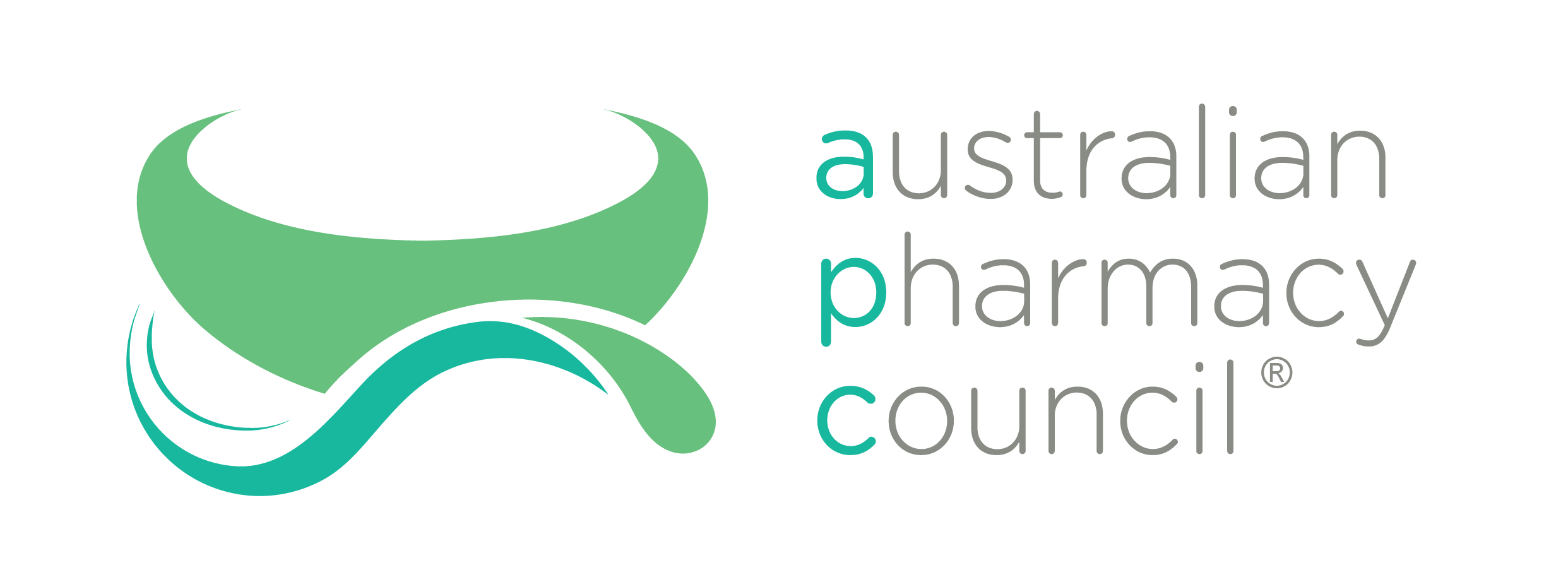
The course consists of 14 modules. Sessions involve didactic teaching and interactive discussion, followed by bench top preparation and simulated cabinet preparation activities under the direct supervision of a trainer. Assessments are conducted for each module.
Course Duration: 5 days Monday to Friday 9AM to 5PM
Frequency: 4 to 6 times per year
Students per course: 6
Fee: $2400 incl GST (subject to change)
There is a waiting list for the course. To register interest in the course and sign up to the waiting list, fill out the expression of interest (EOI) form in link below. By completing the EOI, you will not be confirming your place on a course. We will be in contact with you when a position becomes available, and at that stage request payment. When payment is made, your place will be confirmed.

Cytotoxic preparation EOI 2024
The preparation of pharmaceutical products is a key function of a hospital pharmacy service. The primary aim of aseptic manufacture/dispensing is to produce a sterile product for administration to individual patients. The principles of good manufacturing practice must be adhered to at all times.
The aim of this program is for the participant to develop the necessary knowledge, skills and attitude to apply aseptic principles and safe techniques to the preparation of cytotoxic admixtures under appropriate supervision.
This course is accredited by SHPA under the accreditation program authorised by the Australian Pharmacy Council (APC). This activity has been accredited for 20hrs of Group 1 CPD credits and 4hrs of Group 2 CPD credits (for up to a total of 28 CPD credits), suitable for inclusion in an individual’s CPD plan. The accreditation number is S2024/32.

The course consists of 14 modules. Sessions involve didactic teaching and interactive discussion, followed by bench top preparation and simulated cabinet preparation activities under the direct supervision of a trainer. Assessments are conducted for each module.
Course Duration: 5 days Monday to Friday 9AM to 5PM
Frequency: 4 to 6 times per year
Students per course: 6
Fee: $2400 incl GST (subject to change)
There is a waiting list for the course. To register interest in the course and sign up to the waiting list, fill out the expression of interest (EOI) form in link below. By completing the EOI, you will not be confirming your place on a course. We will be in contact with you when a position becomes available, and at that stage request payment. When payment is made, your place will be confirmed.
Full - Foundations for Allied Health in Cancer Care (Face to Face)
- No sessions currently available
Foundations for Allied Health in Cancer Care
Peter MacCallum Cancer Centre is a world leading cancer research, education and treatment centre and Australia’s only public health service solely dedicated to caring for people affected by cancer.
Who this course is for: Are you a physiotherapists, occupational therapists, exercise physiologists or allied health assistants with an interest in cancer care? A desire to learn about how to deliver best practice for cancer patients and their carers?
Then this course is for you!
You will get chance to meet and hear from experts in oncology including Physiotherapists, Occupational Therapists, Exercise Physiologists, Nurses, and an Allied Health Professor. This introductory course will include:
Presentations on Cancer, Cancer Treatments, Cancer Related Fatigue, Prehabilitation and Palliative Care
Discussions on complexities in cancer (e.g., lymphoedema) and a case study panel
Practical workshops on Exercise in Cancer and Complex Seating and Pressure Care
Consumer Q&A Session
Opportunities for you to network with other colleagues
Morning tea, lunch, and afternoon tea will be provided.
Program: (subject to change)
Time | Session |
8.30-8.50am | Registration |
8.50-9.10am | Acknowledgement of Country and Introduction
|
9.10-9.50am | Introduction to Cancer and Cancer Treatments |
9.50-10.20am | Introduction to Cancer Related Fatigue: Assessment and Intervention |
10.20-11.00am | Oncology Prehabilitation |
11-11.20 | MORNING TEA (provided) |
11.25-11.45am | Q and A with Consumer
|
11.45-12.30pm | Lymphoedema and Other Oncology Complexities |
12.30-1.15pm | LUNCH Sponsored by Haddenham Healthcare |
1.15-3.00pm | Complex Seating and Pressure Care Workshop OR |
1.15-3.00pm | Exercise in Cancer Workshop |
3.00-3.20pm | AFTERNOON TEA Sponsored by Rehabhire |
3.20-4.00pm | Introduction to Palliative Care and Communicating at End of Life
|
4.00-4.50pm | MDT Case Study Panel (include Pain, Sarcopenia, Fatigue, Chemotherapy, Breathlessness)) |
4.50-5.00pm | Evaluation Survey and Close |
See here for travel and parking information.
Face-to-face sessions
Seminar booking
No sessions currently available
Foundations for Allied Health in Cancer Care (Recording - 2023)
Welcome to the recording of the Peter MacCallum Cancer Centre ‘Foundations for Allied Health in Cancer Care’ study day.
This event was a full day seminar held at Peter Mac in October 2023 aimed at Physiotherapists, Occupational Therapists, Exercise Physiologists and Allied Health Assistants working in oncology. Presentations explored various facets within the world of cancer, including Presentations on Cancer, Cancer Treatments, Cancer Related Fatigue, Prehabilitation and Palliative Care. It included discussions on complexities in cancer (e.g., lymphoedema) and a case study panel.
Please note that due to the interactive nature of some sessions, the Practical workshops on Exercise in Cancer and Complex Seating and Pressure Care and the Consumer Q&A Session that were conducted on the day are not included in these recordings.
We also acknowledge that this is a recording of a hybrid event and thus there may be some issues with recording quality, thus the sale price has been reduced to reflect this.
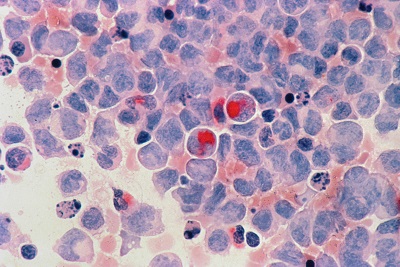
Haematological Malignancies Module One: Academic Nursing Unit (ANU)
Mode of delivery:
OR
Online seminar (with online supporting materials)
Course duration: 1 day
Course dates: For available course dates and delivery modes, scroll to the bottom of this catalogue entry. Note: spaces may be reserved for Peter Mac staff or open for sign-ups from the general public. Ensure a relevant space is available by checking the listings below before purchasing this course.
Pre-requisites: Peter Mac staff members require manager approval to attend this course. No prerequisites exist for external participants.
Audience: This course is open to registered nurses, enrolled nurses and allied health staff.
About this learning program:
This is an introductory level course. This course provides participants with an overview of haematopoiesis and haematological diseases including leukaemia, lymphoma and myeloma. Pathophysiology, treatment and patient management are discussed.
Learning Objectives & Learning Outcomes:
Upon completion of this learning program, the learner will be able to:
- Outline the process of haematopoiesis
- Define haematological malignancies (lymphoma, myeloma & leukaemia) and discuss subsequent treatment options and nursing care issues
- Identify the advances in the treatment and supportive care of patients with haematological malignancies
On completion of the program, participants will be able to define common haematological malignancies and discuss the nursing management for patients with these conditions.
What will I get when I have completed this course?
Upon attendance of the training session, learners will obtain a Certificate of Completion as proof of training.
How to enrol: Click the "add to cart" checkbox on the course icon above to select this course. Once you have added all required courses to your cart, scroll to the top of this catalogue page to view your cart and purchase or enrol in your course(s). After you have purchased your course, access the course page and sign up to your desired session time.
Note: Available course dates are listed below. Ensure the date and mode of delivery suits you before purchasing the course.
Disclaimer - Peter Mac Staff: by enrolling in this course, you are confirming that:
- You have approval from your line manager/delegate to enrol in this program and attend at your selected date/time.
- Your line manager/delegate has approved this program as relevant to your clinical practice and will support completion of relevant clinical competency assessments.
Face-to-face sessions
Seminar Booking - Haematological Malignancies Module One
| Select | Start date | End date | Room | |
|---|---|---|---|---|
| Meeting Room 7B, Level 7, Peter MacCallum Cancer Centre, 305 Grattan Street, Melbourne VIC |
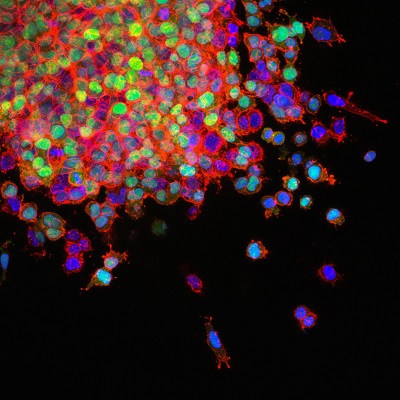
Introduction to Cancer: Academic Nursing Unit (ANU)
Price:
Peter Mac staff: $85
VCCC Alliance partner: $155
All other participants: $210
Face-to-face (with online supporting materials)
OR
Online seminar (with online supporting materials)
Course duration: 1 day
Course dates: For available course dates and delivery modes, scroll to the bottom of this catalogue entry. Note: spaces may be reserved for Peter Mac staff or open for sign-ups from the general public. Ensure a relevant space is available by checking the listings below before purchasing this course.
Pre-requisites: Peter Mac staff members require manager approval to attend this course. No prerequisites exist for external participants.
Audience: This course is open to registered nurses, enrolled nurses and allied health staff.
About this learning program:
This in an introductory level course. This course provides an overview of cancer as a disease process including epidemiology, cell physiology, carcinogenesis, treatment options and the physical and psychosocial impact of cancer on the patient.
Learning Objectives & Learning Outcomes:
Upon completion of this learning program, the learner will be able to:
- Identify factors contributing to the risk of developing cancer and discuss the role of prevention and early detection
- Demonstrate knowledge of cancer cell biology and understand the process of carcinogenesis
- Identify the broad principles of cancer management as applied to diagnosis, staging, treatment and assessment of response
- Demonstrate a knowledge of the overall treatment modalities utilised in the management of cancer as a disease
- Recognise the broad physical and psychosocial impact of cancer and its treatments on patients, families and staff
At the end of the program and with further reading, participants will be able to identify risk factors impacting the development of cancer, discuss the process of carcinogenesis, outline treatment options and discuss the physical and psychosocial impact of cancer on the patient.
What will I get when I have completed this course?
Upon attendance of the training session, learners will obtain a Certificate of Completion as proof of training.
How to enrol: Click the "add to cart" checkbox on the course icon above to select this course. Once you have added all required courses to your cart, scroll to the top of this catalogue page to view your cart and purchase or enrol in your course(s). After you have purchased your course, access the course page and sign up to your desired session time.
Note: Available course dates are listed below. Ensure the date and mode of delivery suits you before purchasing the course.
Disclaimer - Peter Mac Staff: by enrolling in this course, you are confirming that:
- You have approval from your line manager/delegate to enrol in this program and attend at your selected date/time.
- Your line manager/delegate has approved this program as relevant to your clinical practice and will support completion of relevant clinical competency assessments.
Face-to-face sessions
Seminar Bookings - Intro to Cancer
| Select | Start date | End date | Room | |
|---|---|---|---|---|
| Meeting Room 7B, Level 7, Peter MacCallum Cancer Centre, 305 Grattan Street, Melbourne VIC | ||||
| Meeting Room 7B, Level 7, Peter MacCallum Cancer Centre, 305 Grattan Street, Melbourne VIC |

Introduction to Digital Health for Nurses: Academic Nursing Unit (ANU)
About this learning program:
This course provides cancer nurses with a comprehensive overview of key digital health concepts, tools, and technologies. It covers topics such as telehealth, artificial intelligence, patient engagement, data quality, social media use, and digital health equity, empowering participants to enhance patient outcomes through the effective integration of digital health in cancer nursing care.
This course is open to Registered and Enrolled Nurses.
Learning Objectives:
Upon completion of this learning program, the learner will be able to:
- Define digital health and explain its benefits for cancer care.
- Identify key digital health tools and technologies.
- Recognise the importance of data quality in cancer nursing practice.
- Discuss the role, benefits, and challenges of telehealth in cancer care.
- Explain the potential applications and challenges of artificial intelligence in healthcare.
- Explain the importance of patient engagement with digital tools in cancer care.
- Recognise ethical and legal considerations of social media use in healthcare and discuss the role of social media in healthcare and nursing practice.
- Discuss digital health equity issues for disadvantaged populations in cancer care.
Activity requirements:
To successfully complete this program, learners must:
- Book into and attend the full day program
- Complete the post-session evaluation
Additional documents such as slides and print-outs will also be provided via this Learning Hub course page to supplement your learning.
Upon successful completion of the elements listed above, you will be able to access a Certificate of Completion from the relevant tab of this course page.
Learning outcomes:
On completion of the program, participants will be able to discuss the role, benefits and challenges of utilising digital health tools and technologies in the context of cancer care.
Support & troubleshooting:
Please contact Tracey Taylor, Short Course Coordinator, at Tracey.Taylor@petermac.org if you have queries regarding course content. If you require assistance with the Learning Hub processes, please contact the Learning Hub team at LearningHubSupport@petermac.org or call (03) 8559 6107 (9:00 am to 4:30 pm AEST, Monday - Friday).
Note: Available course dates are listed below. Ensure the date and mode of delivery suits you before purchasing the course.
Face-to-face sessions
Seminar Bookings
| Select | Start date | End date | Room | |
|---|---|---|---|---|
| Lecture Theatre B, Level 7, Peter MacCallum Cancer Centre, 305 Grattan Street, Melbourne VIC | ||||
| Online Delivery - Zoom |

Medical Elective placement - application
Elective placements may be available in the following areas at Peter Mac: Haematology, Medical Oncology, Radiation Oncology, Surgical Oncology, Cancer Imaging, Palliative Care, Psychiatry/Psycho-oncology.
An Elective placement will involve joining the activities of the Unit (as deemed appropriate by the Head of each Unit). Generally this would include “shadowing” of the Resident/Registrar, attendance at unit activities (ward rounds, outpatient’s sessions and unit meetings) and hospital educational activities.
Electives are offered for 4 or 6-week rotations.
How to Apply
The elective application process includes:
· Step 1: Submission of an Expression of Interest form;
· Step 2: Invitation to submit an application. Note: There is a non-refundable administration fee of $200 if you accept the invitation to complete the application process.
· Step 3: Successful applicants will be required to complete an onboarding process, including payment of a non-refundable elective fee of $800 for a 4-week placement or $1200 for a 6-week placement. This fee must be paid before the elective placement can commence.
Please refer to our Frequently Asked Questions for further information.
CONTACT INFORMATION
Medical Electives are coordinated by the Office of Cancer Education. Email: education@petermac.org

Medical elective placement - 4 weeks
Elective placements may be available in the following areas at Peter Mac: Haematology, Medical Oncology, Radiation Oncology, Surgical Oncology, Cancer Imaging, Palliative Care, Psychiatry/Psycho-oncology.
An Elective placement will involve joining the activities of the Unit (as deemed appropriate by the Head of each Unit). Generally this would include “shadowing” of the Resident/Registrar, attendance at unit activities (ward rounds, outpatient’s sessions and unit meetings) and hospital educational activities.
Electives are offered for 4 or 6-week rotations.
How to Apply
The elective application process includes:
· Step 1: Submission of an Expression of Interest form;
· Step 2: Invitation to submit an application. Note: There is a non-refundable administration fee of $200 if you accept the invitation to complete the application process.
· Step 3: Successful applicants will be required to complete an onboarding process, including payment of a non-refundable elective fee of $800 for a 4-week placement or $1200 for a 6-week placement. This fee must be paid before the elective placement can commence.
Please refer to our Frequently Asked Questions for further information.
CONTACT INFORMATION
Medical Electives are coordinated by the Office of Cancer Education. Email: education@petermac.org

Medical elective placement - 6 weeks
Elective placements may be available in the following areas at Peter Mac: Haematology, Medical Oncology, Radiation Oncology, Surgical Oncology, Cancer Imaging, Palliative Care, Psychiatry/Psycho-oncology.
An Elective placement will involve joining the activities of the Unit (as deemed appropriate by the Head of each Unit). Generally this would include “shadowing” of the Resident/Registrar, attendance at unit activities (ward rounds, outpatient’s sessions and unit meetings) and hospital educational activities.
Electives are offered for 4 or 6-week rotations.
How to Apply
The elective application process includes:
· Step 1: Submission of an Expression of Interest form;
· Step 2: Invitation to submit an application. Note: There is a non-refundable administration fee of $200 if you accept the invitation to complete the application process.
· Step 3: Successful applicants will be required to complete an onboarding process, including payment of a non-refundable elective fee of $800 for a 4-week placement or $1200 for a 6-week placement. This fee must be paid before the elective placement can commence.
Please refer to our Frequently Asked Questions for further information.
CONTACT INFORMATION
Medical Electives are coordinated by the Office of Cancer Education. Email: education@petermac.org

Medical elective placement - 8 weeks
Elective placements may be available in the following areas at Peter Mac: Haematology, Medical Oncology, Radiation Oncology, Surgical Oncology, Cancer Imaging, Palliative Care, Psychiatry/Psycho-oncology.
An Elective placement will involve joining the activities of the Unit (as deemed appropriate by the Head of each Unit). Generally this would include “shadowing” of the Resident/Registrar, attendance at unit activities (ward rounds, outpatient’s sessions and unit meetings) and hospital educational activities.
Electives are offered for 4 or 6-week rotations.
How to Apply
The elective application process includes:
· Step 1: Submission of an Expression of Interest form;
· Step 2: Invitation to submit an application. Note: There is a non-refundable administration fee of $200 if you accept the invitation to complete the application process.
· Step 3: Successful applicants will be required to complete an onboarding process, including payment of a non-refundable elective fee of $800 for a 4-week placement or $1200 for a 6-week placement. This fee must be paid before the elective placement can commence.
Please refer to our Frequently Asked Questions for further information.
CONTACT INFORMATION
Medical Electives are coordinated by the Office of Cancer Education. Email: education@petermac.org

Full - Pain Management in the Oncology Setting: Academic Nursing Unit (ANU)
- No sessions currently available
Mode of delivery: Face-to-face (with online supporting materials)
Course duration: 1 day
Course dates: For available course dates and delivery modes, scroll to the bottom of this catalogue entry. Note: spaces may be reserved for Peter Mac staff or open for sign-ups from the general public. Ensure a relevant space is available by checking the listings below before purchasing this course.
Pre-requisites: Peter Mac staff members require manager approval to attend this course. No prerequisites exist for external participants.
Audience: This course is open to registered nurses, enrolled nurses and allied health staff.
About this learning program:
This is an introductory level course. This course focuses on the issue of pain in people with cancer. Topics include the pathophysiology of pain, nursing assessment of pain, pharmacological and non pharmacological management of pain, the role of interventional procedures, the use of radiotherapy for the treatment of cancer pain and nursing management of delivery devices.
Learning Objectives & Learning Outcomes:
Upon completion of this learning program, the learner will be able to:
- Define pain
- Explain the pathophysiology of pain
- Identify and discuss pharmacological and non pharmacological approaches to pain management
- Discuss patient assessment and documentation requirements for pain management
- Explain the application and management of delivery devices for pain management
On completion of the program, participants will be able to discuss the pathophysiology of pain, identify key management approaches to pain management and outline nursing responsibilities for patient care.
What will I get when I have completed this course?
Upon attendance of the training session, learners will obtain a Certificate of Completion as proof of training.
How to enrol: Click the "add to cart" checkbox on the course icon above to select this course. Once you have added all required courses to your cart, scroll to the top of this catalogue page to view your cart and purchase or enrol in your course(s). After you have purchased your course, access the course page and sign up to your desired session time.
Note: Available course dates are listed below. Ensure the date and mode of delivery suits you before purchasing the course.
Disclaimer - Peter Mac Staff: by enrolling in this course, you are confirming that:
- You have approval from your line manager/delegate to enrol in this program and attend at your selected date/time.
- Your line manager/delegate has approved this program as relevant to your clinical practice and will support completion of relevant clinical competency assessments.
Face-to-face sessions
Bookings (Open to Staff & External): Pain Management
No sessions currently available